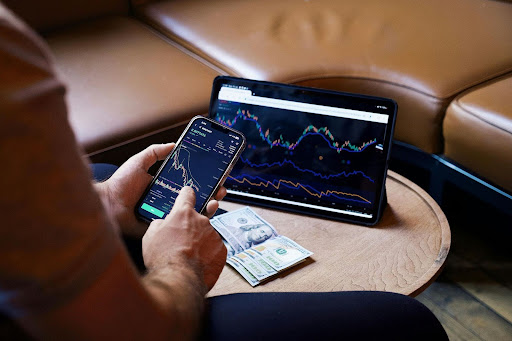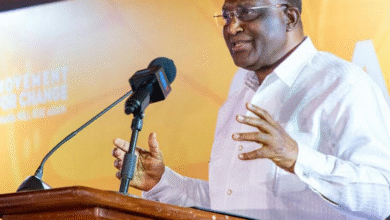Ghana Wants to Become Africa’s Tech Capital

Ghana just made a big announcement about technology. The government says it wants to become the number one digital trade hub in Africa. Officials revealed this plan at the National ICT Week in Accra, and they sound pretty confident about their chances.
New Laws Will Help Tech Companies
Mohammed Adam Sukparu, the Deputy Minister, spoke about what Ghana plans to do next. The government will introduce the Innovations and Start-up Bill when parliament meets again. This law will give tech companies tax breaks and legal protection. Parliament will also pass amendments that turn NITA into an independent digital regulator with more power over Ghana’s tech sector.
Ghana already has some advantages. The country has lots of young people who understand technology. The tech sector grows fast there compared to other African countries.
Technology changes how businesses work everywhere, and companies compete to serve customers better and faster. Online entertainment shows this clearly. For example, gaming websites used to take weeks to pay winnings to players, but now, fast payout casinos send money in hours because they have built better payment systems and verification processes.
The government started the One Million Coders Programme to teach younger people how to write software and build apps. They also created digital ID cards for citizens, so 18 million people have them now. This makes online business safer because companies can verify who they work with.
UAE Invests $1 Billion in Ghana Tech Hub
Ghana signed a Memorandum of Understanding with the UAE for a $1 billion Ghana-UAE Innovation Hub, the biggest tech center in Africa.
Big companies want to join this project. Microsoft, Meta, Oracle, IBM, and Alphabet plan to open African offices there. They want to create AI products that solve African problems in farming, healthcare, and education.
Other industries show how technology helps people. Hospitals use computer systems to read X-rays and find diseases faster than doctors can do alone. These tools save lives because they catch problems early.
Banks use blockchain technology to make payments safer and cheaper. The old system took days to move money between countries. New systems do it in minutes and cost less than traditional methods.
Government Focuses on Digital Security
Ghana knows that people worry about online safety. Deputy Minister Sukparu said building digital trust is now the new currency of digital trade. NITA will team up with the National Communications Authority, Cyber Security Authority, and Data Protection Commission to create one big security framework that protects everyone.
Car companies use similar technology improvements. Factories have robots that work with AI systems to build better vehicles. These robots don’t get tired and make fewer mistakes than human workers.
Stores experiment with augmented reality to help customers shop. People can see how furniture looks in their homes before they buy it. Apple, Meta, and Microsoft all make devices that do this.
Mobile Money Success Shows Ghana Can Lead
Ghana built something special: a payment system that connects every bank and mobile phone company. People can send money from any bank account to any mobile wallet instantly. No other African country has this type of system.
The numbers prove it works. Ghanaians used mobile money for $36 billion worth of transactions in 2020. Thirty million people have mobile money accounts. Most venture capital investment in Ghana goes to fintech companies.
Power companies also use smart technology. They built electricity grids that know exactly how much energy each building needs. This wastes less power and costs customers less money.
AfCFTA Location Gives Ghana a Big Advantage
Ghana hosts the African Continental Free Trade Area headquarters. This makes Ghana a natural gateway for African trade through the AfCFTA single market.
The government created a National AI Strategy to make Ghana the AI center of West Africa. They focus on agriculture, healthcare, transport, smart cities, and financial services.
Factories around the world use robots and smart systems that tell workers when machines might break before they actually stop. This saves companies millions of dollars and prevents production delays.
Competition Between Countries Gets Intense
Every country wants to lead in technology. China, America, and Europe spend billions on research and development. African countries cannot match that money, but they can choose smarter strategies.
Ghana picked areas where it can win. The country has political stability that investors trust. It sits between Europe and other African markets. Young people there learn technology skills quickly.
The UAE investment proves that international companies believe Ghana can succeed. Nobody spends $1 billion on projects they think will fail.
Success Depends on Execution
Ghana has good plans, but plans mean nothing without proper execution. The government must deliver on its promises about new laws, infrastructure, and education programs.
The country already proved it can build systems that work. Mobile money success shows Ghana can compete with anyone in financial technology. The digital ID system works well, too.
Other African countries watch Ghana’s progress. If Ghana succeeds, it will create jobs for millions of people and attract more international investment. If it fails, other countries will learn from Ghana’s mistakes and try different approaches.
Right now, the signs look positive. International companies put money where they expect profits. The billion-dollar UAE deal suggests that smart investors believe Ghana’s tech strategy will work.




